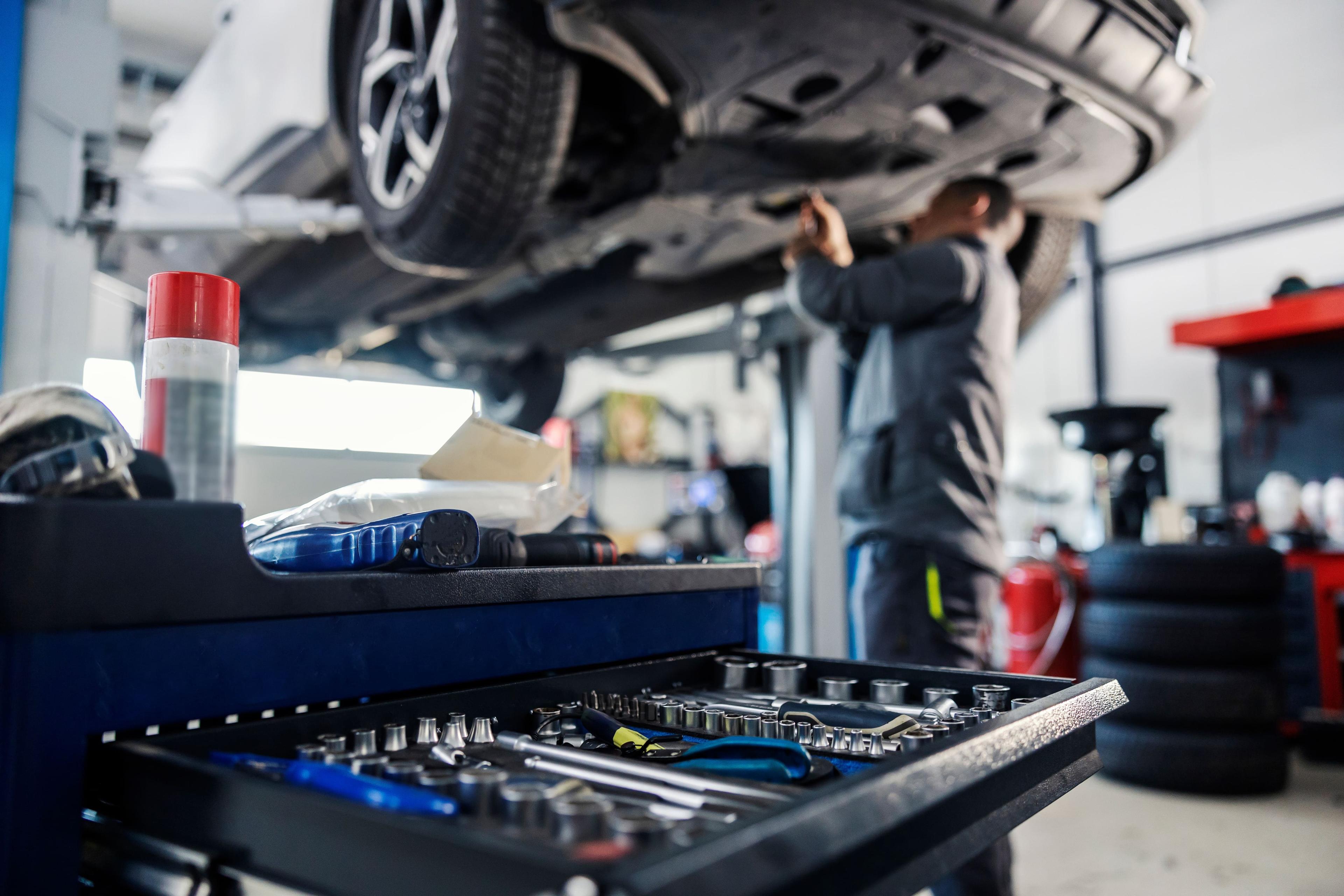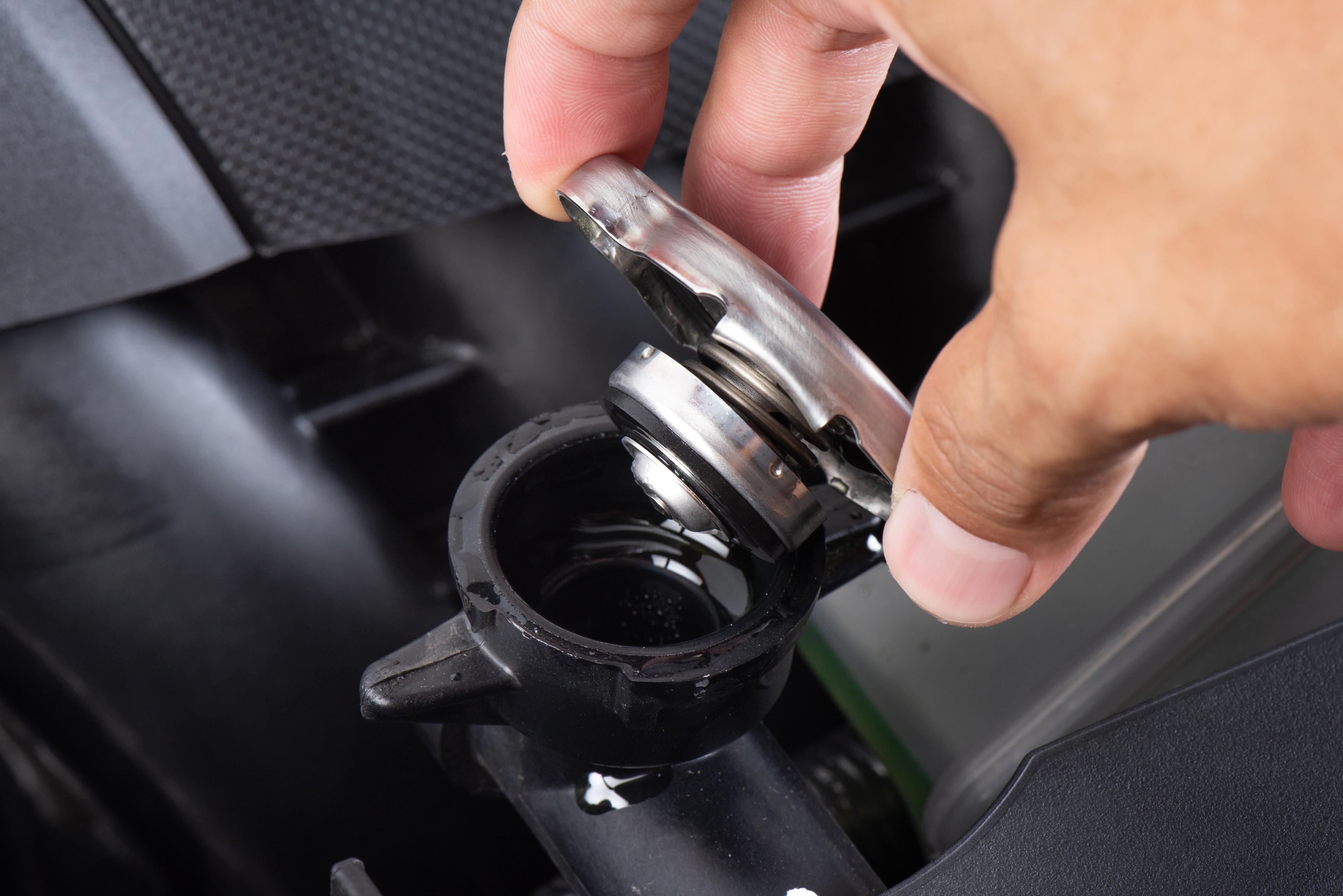
What To Do If Your Engine Is Overheating
Engines produce significant amounts of heat through normal operation. If the cooling system is not performing effectively, and the engine is allowed to overheat, this can cause serious problems for the engine. We’ll review the common causes, problems and solutions to engine overheating.
Scroll down if you're in a rush and need to find out exactly what to do NOW if your car is overheating.
What is engine overheating?
Engines have a specific temperature range they should operate within. This is regulated by the cooling system via a thermostat. Its purpose is to maintain an acceptable temperature range regardless of engine load or external conditions.
An engine that is running too hot - the needle is in the red range of the gauge - or one that's temperature is increasing steadily with normal driving can be considered to be ‘overheating’.
How to diagnose engine overheating
If the engine heats up beyond safe temperatures, a warning light will come on.

All modern cars will have some form of gauge that indicates the engine's temperature, usually a dedicated dial that will start at cold and move to normal as the engine warms up.
It’s good practice to keep an eye on this dial whenever driving, especially if you notice the gauge at anything more than normal temps.
Some situations like towing a heavy trailer, or idling in traffic on a very hot day may affect the temperature slightly, but those situations should be very rare in the UK’s climate.
What if my car doesn't have a temperature gauge?
Some cars don’t make space for a dedicated temperature gauge, either due to a design choice by the manufacturer or a cost-cutting measure.
Don’t worry though, almost all cars will have at least a low and high-temperature warning light - check your owner’s manual for more information.
You’ll see this light when the car is first turned on, usually presenting as a blue light, to indicate the engine is cold - this should turn off after 10-20 minutes of driving.
What to do when your car overheats
Should you notice your temperature gauge is sitting higher than normal, or is rising with normal driving conditions, your engine may be overheating.
1. You should park as soon as it’s safe to do so and turn off the engine.
2. If the gauge is only slightly above the middle, leave the engine to cool down and continue your drive after 30-40 minutes. Be prepared to stop again should the engine continue to overheat.
3. If the engine has overheated to the red zone of the gauge, or you have not noticed it increasing until this point, stop the car as soon as possible.
4. Call for assistance immediately from your breakdown cover
5. It is not recommended to continue driving, as the heat will only increase until the engine suffers fatal damage.
How to stop engine overheating
The cooling system on any engine is designed to remove as much heat as possible from the engine and components connected to it, the first step to diagnosing an overheating engine is to check the coolant system for faults.
An ECU scanning tool could help identify if any of the temperature sensors are reading higher than normal levels, this will help pinpoint where the issue is. Thermostats should be tested to ensure they are opening and allowing the radiator to work effectively.
What causes engine overheating?
There are a few different reasons your car may be overheating, most stem from a fault with the cooling system. Two reasons for overheating engines could be no coolant or a blocked radiator.
No Coolant
Engine cooling systems use a liquid coolant to remove excess heat from the engine, by transferring it into the air via a radiator. If the coolant system has no coolant left due to a leak or natural evaporation, the cooling system will not work.

If you don’t know what coolant to use, check our guide here.
Blocked Radiator
The coolant system uses a radiator to remove heat from the engine. They are similar to a household radiator (except they work in the opposite way) in that they have thin ‘fins’ of metal for higher surface area.
These fins can become blocked with dirt and debris from an ageing cooling system and create blockages in the system as a whole. Once the coolant is blocked from flowing around the system, heat can no longer be removed and the engine will gradually overheat.
How much does it cost to fix an overheating engine
Noticing the problem early is key. If the engine is overheating due to a cooling issue such as a leaking radiator, blocked hoses or failing water pump, and the engine hasn’t been driven excessively whilst overheating, typical repair costs for an overheating engine should be between under £300-400. Noticing the problem early is key.
However, if the engine is exhibiting the signs detailed above, particularly loss of power, then your engine may need serious repair work. In some cases, this will involve a new cylinder head, but at the least, a new head gasket is probably required.
We have a guide on typical head gasket replacement costs, but a new cylinder head could easily run between £1000-1500 to fix.
Don't face a hefty repair bill alone. Split the cost into interest-free monthly instalments at thousands of partner garages nationwide.
Spread the cost, interest-free
Take the backfire out of fixing or replacing your exhaust. Pay later with Bumper.
How to tell if my engine has been damaged by overheating
Engines are manufactured to precise tolerances, overheating can easily cause the metal components to warp or crack under the mechanical and temperature stresses.
If this happens there are often clear signs of overheating these include smoke from the engine bay, loss of power, and issues starting the engine.
If you experience any of these problems after your engine has been driven whilst overheating there’s a good chance your engine is seriously damaged.
Speak to an expert
If you have an overheating engine and are unsure what to do, it may be time to speak to an expert. With Bumper, you can split the cost of service and repairs into interest-free monthly payments at 1000s of dependable garages and dealerships.
Spread the cost, interest-free
Take the backfire out of fixing or replacing your exhaust. Pay later with Bumper.
Author - Joseph Law
Joseph has been writing about cars for over seven years and writing for Bumper for over two, blending his passion for automobiles with a talent for storytelling.
Joseph has written about engineering and cars for Autozilla, Komaspec, and several engineering manufacturers. When he's not writing or tinkering with one of his five cars, Joseph dreams of owning an Alfa Romeo 33 Stradale.
Split your car repair cost over monthly repayments interest-free.
Split the cost of your next repair
Other related articles from our blog

Advice
5 min read
How much does a Volkswagen Tiguan Repair cost?
Volkswagen Tiguan repair costs can be anywhere from under £300 to over £800 depending on the car’s age and issue. See VW Tiguan repair costs online now.

Advice
5 min read
How much does it cost to repair a coolant leak on a VW Golf?
VW Golf coolant leak repair costs sit anywhere from £60 to £450, depending on the cause and severity of the issue. Find out what to expect from your repair now.

Advice
3 min read
How much does a Fiat cost to repair in the UK?
Fiat repair costs typically range from £70 to £1,200, depending on the repair type. Find out typical Fiat repair costs for common repair jobs.